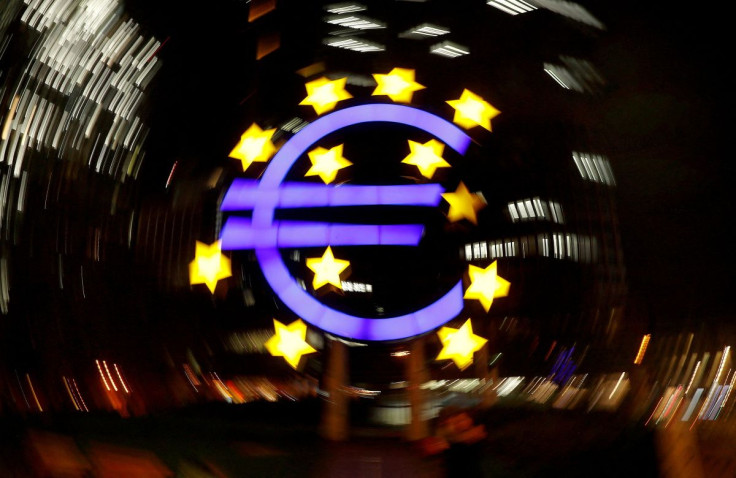Euro Zone Yields Rise, Tracking Moves In U.S. Treasuries

Euro zone borrowing costs were up on Thursday as a jump in U.S. Treasury yields the day after the Federal Reserve policy meeting outweighed dovish signals from the Bank of England.
The yield on 10-year Treasury notes was up 13 basis points to 3.074% following a volatile day centered on Federal Reserve Chairman Jerome Powell's ruling out of rate hikes of more than 50 basis points.
"U.S. markets took the lead as investors are still digesting the impact of the Federal Reserve policy meeting, realising that Fed chair Powell's message was not so dovish," said Massimiliano Maxia, senior fixed income specialist at Allianz Global Investors. "U.S. rates could get close to 3% by year-end."
"Fears of surging inflation and monetary solid tightening measures from the ECB are still at the centre stage," he added.
The Bank of England raised interest rates to their highest level since 2009 at 1% on Thursday to counter inflation now heading above 10%, even as it warned that Britain risks falling into recession.
The BoE "downgraded its forecast for the UK economy, and it seems that the tightening cycle is about to end soon. That's a dovish signal also for the euro zone," said Antoine Bouvet, senior rates strategist at ING.
Germany's 10-year government bond yield, the benchmark for the bloc, was up 6 basis points (bps) at 1.033%. Two-year yield, more sensitive to interest rate expectations, was flat at 0.27%.
Money markets are still pricing in around 90 bps of ECB rate hikes by year-end. They moved to price in an 85% chance of a 25 bps rate hike by July.
The European Central Bank should hike its deposit rate in July by 0.25 percentage point, the ECB's policy maker, Olli Rehn, told a Finnish daily on Thursday.
In Italy, the 10-year yield was up 6 bps to 3.029%, its highest level since December 2018, with the closely watched risk premium over German bonds at 196 bps, after hitting the highest level since May 2020 at over 198 bps on Wednesday.
There was little reaction to remarks by ECB chief economist Philip Lane, who said the bank is preparing for a sequence of rate hikes that will put its benchmark in positive territory.
The path it takes is more important than the exact date of the first move, Lane added.
Earlier on Thursday, ECB board member Fabio Panetta said the bank should not raise interest rates in July, a move an increasing number of policymakers are advocating, and should wait to see euro zone second-quarter GDP data.
In the primary market, Spain raised 5.61 billion euros from five to 50-year bonds and France raised 10.99 billion euros from 10 to 30-year bonds.
© Copyright Thomson Reuters {{Year}}. All rights reserved.





















